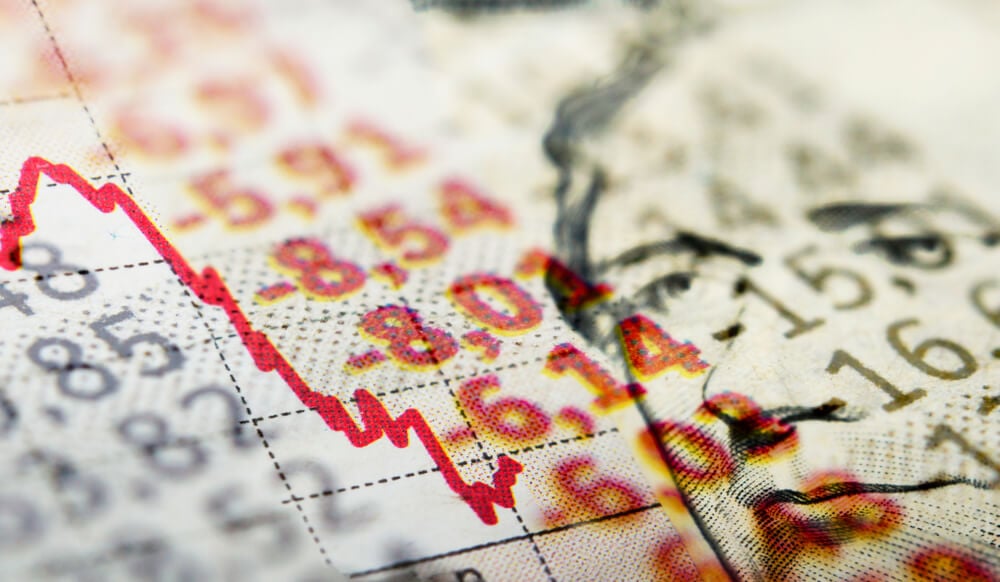Economist Rings 2020 Recession Alarm after ‘Turbo Fiscal Boost’ Fizzle

2019 has been a tremendous year for the stock market hitting record highs but that'll flip in 2020, an economist has warned. | Source: Shutterstock.com
- Former IMF economist predicts a recession to happen in 2020.
- 2019 stock market rally has been driven by relaxed financial conditions and big liquidity rejections.
- But, repo market often sees volatility at year’s end and negative sentiment could carry over to 2020.
Mark Dow, a former International Monetary Fund (IMF) economist, says 2020 will be the year of recession. The forecast follows a record-high stock market and a strong U.S. economy.
Main reason for recession is instability of fiscal policy
In July 2019, Dow famously said that starting next year, the U.S. economy will begin to slow as the “turbo boost” from the current U.S. fiscal policy wears off.
He said:
Inherit a 2% economy, dump a boatload of OPM on it, get 3% for a year or two, claim it’s the greatest economy the world has ever seen, and when the turbo fiscal boost rolls off and the economy starts to slow, blame the Fed for not keeping interest rates at zero.
The U.S. government and the Federal Reserve have worked to sustain relaxed financial conditions throughout the year amidst intensifying geopolitical risks.
While the phase one deal between the U.S. and China alleviates some pressure on businesses in the final quarter of 2019, the impact of the deal itself on the U.S. economy is widely considered to be overestimated.
As the short-term effect of the strong fiscal policy of the U.S. dries out, Dow emphasized that the U.S. economy will start to show signs of struggle. Despite an optimistic year for business confidence, a sudden drop off in momentum could lead to a full-blown recession.
A repo hangover
A potential major factor that may add to the probability of a recession occurring in the upcoming year is the unstable repo market.
Since the second half of 2019, injections of liquidity by the Federal Reserve have significantly increased business sentiment and improved financial conditions.
However, the first several months of 2020 may see a hangover of the effect of the unsteady repo market .
Reports indicate that Wall Street fears the expansion of the $2.2 trillion repo market heading into the year’s end. Typically, in the final month of the year, banks tend to become more cautious with taking on more risk to meet their targets.
As such, the instability of the repo market in December could carry onto the first several months of 2020, sparking fears of a rough start to the new year.
More high net worth investors are worrying
The CNBC Millionaire Survey shows that 14% more high net worth individuals foresee the U.S. economy to weaken . Fears of recession are rising again regardless of the current momentum of the U.S. stock market.
Analysts say that the strong performance of the stock market in 2019 is mostly based on P/E expansion over earnings.
It is a possibility that the stock market is being over-valued by retail investors considering market conditions and the hype around the U.S-China deal.